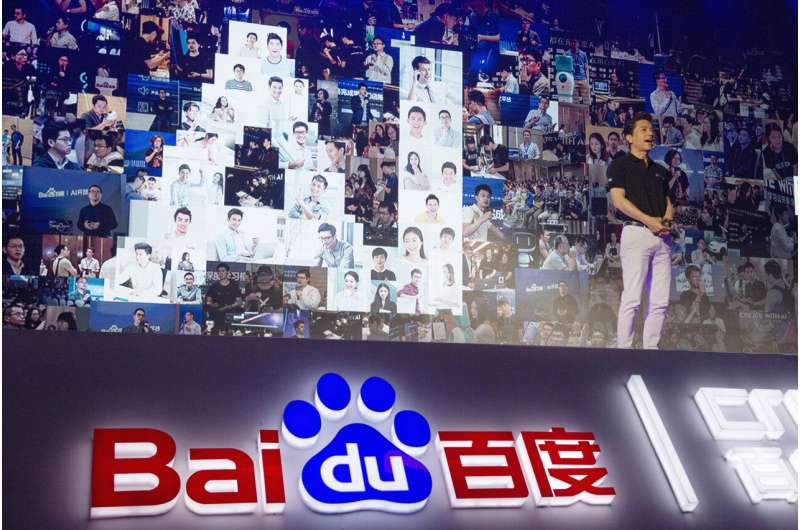Robin Li, CEO of search giant Baidu, talks about AI during the Baidu Create 2018 held in Beijing, China, Wednesday, July 4, 2018. Baidu Inc., one of China’s biggest search and artificial intelligence firms, said Wednesday, Feb. 22, 2023, it plans to implement its artificial intelligence chatbot Ernie into its search services from March. Credit: AP Photo/Ng Han Guan
Baidu Inc., one of China's biggest search and artificial intelligence firms, said Wednesday it plans to implement its artificial intelligence chatbot Ernie into its search services from March.
Baidu, which is known for its search engine and autonomous driving technology, leads China's efforts to create an equivalent of OpenAI's ChatGPT chatbot. It said earlier this month that it will complete internal testing of Ernie Bot in March before making the service public.
In an internal memo, Baidu CEO Robin Li said that Ernie Bot will be integrated across all of Baidu's operations, including its search and cloud services. Baidu also plans to integrate Ernie into its smart car operating system and smart speaker.
The company's stock price in New York jumped nearly 7% in pre-market trading Wednesday to more than $150 a share.
"AI technology has reached a tipping point and all industries will inevitably go through transformation," Li said in the memo.
"Baidu stands as the best example of the long-term growth of China's AI market and is advancing at the forefront of this new wave," he said.
The company also announced a $5 billion share buyback on Wednesday.
Baidu reported revenues of 33.1 billion yuan ($4.8 billion) for the quarter that ended in December, about level with the same period of 2021.
Most of Baidu's revenue comes from its online marketing services, which generated 18.1 billion yuan ($2.62 billion) in sales in the last quarter.
Its Apollo Go autonomous ride-hailing services provided 561,000 rides in the fourth quarter, up 162% from a year earlier.
After years of regulatory scrutiny following a crackdown on the technology sector and a sluggish economy battered by COVID-19, companies like Baidu look likely to invest more as China looks to the industry to revive the economy.
© 2023 The Associated Press. All rights reserved. This material may not be published, broadcast, rewritten or redistributed without permission.
























